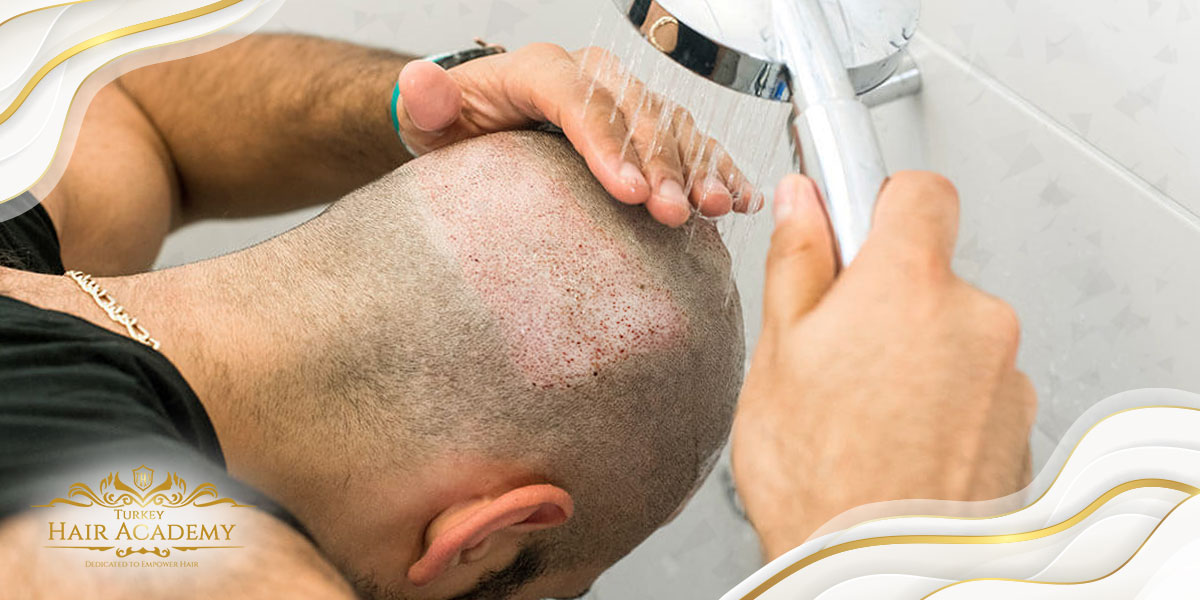Paying attention to hair care after hair transplantation plays a big role for the transplantation process and hair health. In hair transplantation applications, which is one of the sensitive transplant procedures, it is necessary to apply the items recommended by the relevant specialist. Some tips after hair transplantation:
- Hair should not be brought into contact with water for 2 days following the hair transplantation.
- It is not recommended to wear a hat until all the transplantation sessions are over and the hair grafts settled.
- Apart from the hair products recommended by the specialist, products such as shampoos, sprays, gels, conditioners should not be used.
- Hair should not be dried with a hair dryer after a shower.
- The shower head should not have a strong spraying structure.
- During the shower, the hair should not be washed with too hot or too cold water.
- A haircut can be done at least 3 months after hair transplantation. It is recommended to use scissors when cutting and not use a machine.
- Since scratching the scalp, constantly playing with the hair can prevent the growth of hair follicles, which will begin to form new ones and become stronger, contact with the hair should be kept to a minimum.
- After transplantation, dying your hair is not recommended.
Symptoms That May Appear After a Hair Transplantation
Within the first seven days from the day of application, swelling, redness and itching of the scalp may be felt. It is recommended to lie face down or on your side to reduce pressure on the head area. Areas where there are swellings and rashes should not be scracthed. Ice can be applied for swellings. If pain is experienced due to swelling, painkillers can be used with the recommendation of a doctor.
For two weeks after the procedure, the head area should be carefully protected, taking into account all recommendations. In rare cases, infection is observed in the donor and transplanted areas. If an infection-related symptom is observed, except for the symptoms that may appear after transplantation, the relevant specialist should be contacted.
 Other Factors Affecting the Healing Process After Hair Transplantation
Other Factors Affecting the Healing Process After Hair Transplantation
No matter how the hair transplant was done with high-quality grafts, it is extremely important to follow the care routines and protect the head area as long as the recovery continues. Among the factors affecting the growth of newly planted hair, the following substances are included:
- During the first two weeks after the procedure, clothes such as shirts, cardigans should be preferred instead of clothes worn from the head area such as sweaters, T-shirts.
- Sauna, hot spring, pool and solarium should not be used during the first month from the day of transplantation.
- Sports activities should be started at least 2 weeks after the transplantation. If sports such as boxing, taekwondo, wrestling, basketball, football are performed that cause intense impact to the head area, it is recommended to stay away for at least 1.5 months.
- During the first month after the operation, smoking and alcohol consumption are not recommended.
- The first two weeks after the procedure should not be in too hot and too cold areas, direct sunlight contact with the head area should be avoided.
- It is recommended that the use of constantly used medications be continued on the recommendation of a doctor and that aspirin, herbal medicines and vitamin supplements should not be taken for the first two weeks after surgery.
It is important to pay attention to the nutrition of the hair grafts that have been newly transplanted, which will get a natural appearance and have a healthy structure over time, by maintaining them well. The donor collection and transplantation process has become quite simple operations that can be completed in a short time with the developing technology. But the healing process is longer and more laborious than the operation process. Transplantation specialists are required to follow the entire recovery process after completing the procedure, and the patient should visit the clinic without interrupting the established control days.

